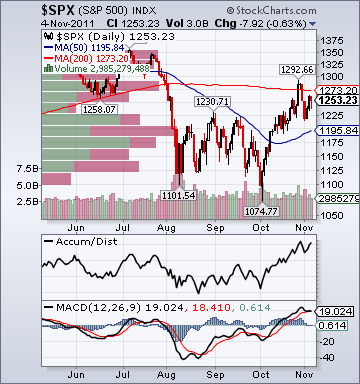Style Underperformer:
- Small-Cap Growth (-1.61%)
- 1) Networking -2.53% 2) Coal -2.41% 3) Alt Energy -2.20%
- OVTI, CCJ, BRKS, AIXG, DLLR, MDRX, MED, DMND, HWCC, BSFT, TESO, ORBK, ARIA, SGEN, OPTR, VRTX, MXWL, IACI, ROVI, SATS, MEAS, PANL, AKAM, CYOU, SGNT, MSG, CIX, MTZ, PHG and ISH
- 1) KBH 2) AMGN 3) GPS 4) ARIA 5) HFC
- 1) TSL 2) DOX 3) DHI 4) DOW 5) JOYG
